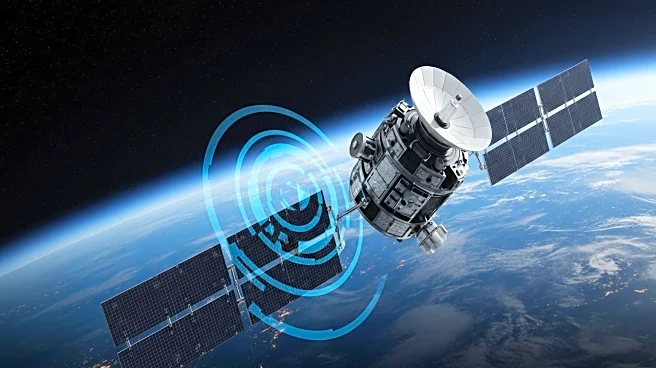What's Happening?
Lithuania has raised concerns about GPS jamming activities originating from Russia, which are affecting navigation systems across the region. According to Lithuania's communications regulator, RRT, there has been a significant increase in GPS signal disruptions, with more than 1,000 Lithuanian aircraft and 33 ships experiencing issues in August alone. The disruptions are reportedly linked to spoofing sources from the Russian enclave of Kaliningrad, which have increased from three locations in February to 29 in August. These jamming activities have a long range, potentially affecting areas up to 400 km away, including Berlin. Lithuania is urging the European Union to respond decisively by imposing sanctions, mobilizing international action, and investing in resilient technologies.
Why It's Important?
The GPS jamming threat poses significant risks to navigation safety and economic activities in the affected regions. Large ships have refused to enter ports due to safety concerns, and pilots are under stress, requiring additional training to land safely. The disruptions also impact farmers, causing economic losses due to interference with connected tools. The broader implications include potential threats to transportation and logistics, which are critical for trade and commerce. The EU's response to this threat could set a precedent for handling similar issues in the future, emphasizing the need for coordinated international efforts to address technological vulnerabilities.
What's Next?
Lithuania is advocating for the EU to impose tough sanctions on Russia and accelerate investment in technologies that can withstand GPS jamming. The EU may consider mobilizing international action through the International Telecommunication Union to address the issue. Frontline countries are preparing for further disruptions, and there may be increased efforts to monitor and mitigate the impact of GPS jamming. The situation could lead to heightened tensions between the EU and Russia, influencing diplomatic relations and security policies.
Beyond the Headlines
The GPS jamming activities highlight the growing importance of cybersecurity and technological resilience in modern geopolitics. As navigation systems become increasingly reliant on digital signals, the potential for interference poses ethical and legal challenges. The situation underscores the need for international cooperation to establish norms and regulations governing the use of technology in conflict scenarios. Long-term shifts may include increased investment in alternative navigation technologies and enhanced security measures to protect critical infrastructure.









